Talking 'Too Early For Birds' With The Writers
The writers of Too Early For Birds (and I say this with the utmost respect and admiration) are a peculiar bunch. The perfect mix of quirk, humor and pure genius.
So what happens when you put @Ngartia, @LadyTercy, @theMagunga, @AVoodooChile and @WanjikuMwavu in one room, bury them under research material, FEED THEM, and ask for a script?
— Too Early For Birds (@tooearly4birds) August 28, 2019
A lot of NOT writing, apparently. 😒
(Tʜɪs ᴛᴡᴇᴇᴛ ᴡᴀs ᴅʀᴀғᴛᴇᴅ ʙʏ @QueenGathoni) pic.twitter.com/QmAiJdPa9v
Mookh: Hey, let’s start with introductions.
Masido: I’m Helen Masido. Just call me Masido.
Magunga: I’m Magunga Williams and I am a writer… and I fixed my tooth!
Wanjiku (in a raspy voice): I’m Wanjiku and I sound like this all the time.
Ngartia: I’m Ngartia and I didn’t have enough time to think of something clever to say.
Mercy: I’m Mercy Mutisya and I’m a writer with Too Early For Birds.
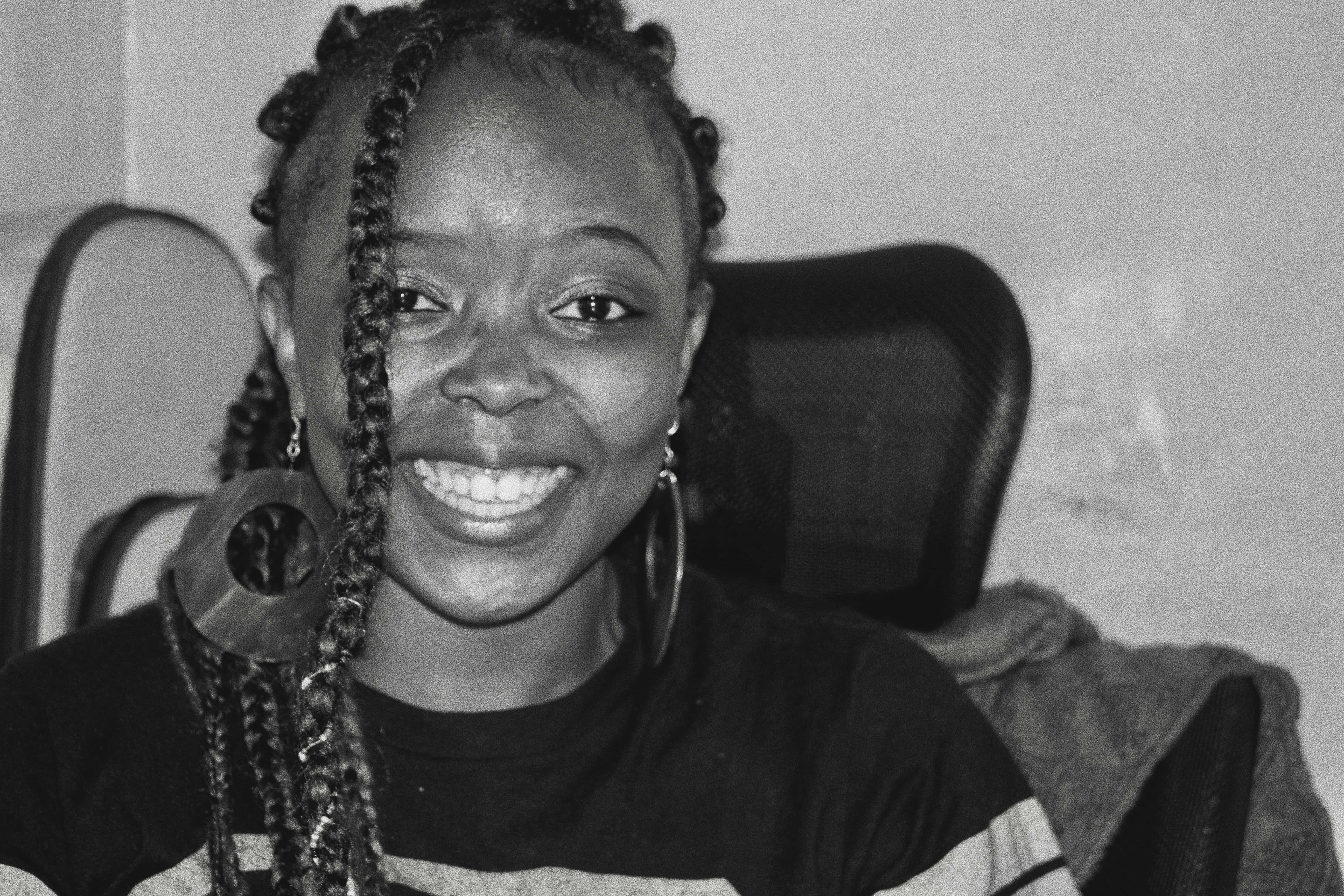
Mercy
Mookh: First, take us through the writing process. How has it been so far?
Masido: It’s been rough. The problem with research is knowing when to stop. Every time you’re writing there’s always some new piece of information that you’re like, oh my God, this needs to be there! There’s always something coming up that needs to be included. So, it’s been tough.
Mercy: It’s been a rollercoaster. Ngartia and I were part of the research team and now we’re part of the writing team. You go through the whole process and you’re like, oh my God this needs to be in there and this needs to be in there! Then, you join the writing team and the writers come with their research and you’re like, oh shit I didn’t know that. Oh, fuck, I thought I was a researcher. It’s been a rollercoaster because first, finding out things that you weren’t taught in school is always mind boggling. Also, getting to write it in a way that people will remember and not water down its importance- while still being entertaining- is not easy. The wisdom of finding that balance. That’s why these people are crazy wise and crazy talented because we need to find a balance that works. We need to make sure our audience will not leave the auditorium extremely traumatized or extremely entertained that they forget the lessons we wanted them to learn from the story. Also, finding that objectivity in as much as you want to be personal with the story, is not easy. It’s been a rollercoaster but we’re pushing through.
Ngartia: This is the first time we are workshopping a script and I am a part of the workshop. We did that with Brazen but that was a different team of writers. Before that, Abu and I would handle the heavy lifting for the script. Wanjiku would drop in once in a while to save us but the moment we started breathing, she would disappear. So, this time it’s been different for me and different in a really dope way. Seeing these guys come up with stuff and I’m like yeah, we’d never have come up with that… lemme just act cool and act like yeah, this is what we’ve been doing the whole time! That’s been an amazing change despite the challenges, which are always there. It’s been a refreshing process for me.
Magunga: I mostly write for my blog and newspapers. I write about travel and book reviews and movie reviews and on the blog, I write about normal things. Then, someone calls me and asks me to write for a show. First of all, it’s for a show, I’ve never written a script for stage, tv or any of that and then it’s also about someone who is at the core of Kenyan history. So, they want me to do serious things that I left in school. Things like research. I refused to become a lawyer because I didn’t like that kind of thing but it seems to follow me everywhere. I’m shooting in the dark, so if the show goes wrong, it’s their fault but if it goes well then, I was part of the team!
Masido: Like Magunga, coming in I was also not sure. From the time Too Early For Birds began it was always Ngartia and Abu doing the writing. So, we were just waiting for the script, like, yo, guys, mnatuchelewesha. Being in the writing process, I’m also shooting in the dark because I’ve never written for theatre. I’ve written for other projects like film but I’ve never written for theater. But, one of the things we realized when we were starting the writing process was that Too Early For Birds, really, has no form. It’s very fluid. Brazen was a proper play but with most of the other editions, even when explaining to someone, you’re not entirely sure how to describe it. Even for us as writers, it was tricky to decide that there is no particular format. It was kind of like a journey into the unknown which has been rewarding because it was like, just write a story that you want to see told, in the way that you’d like to see it told.
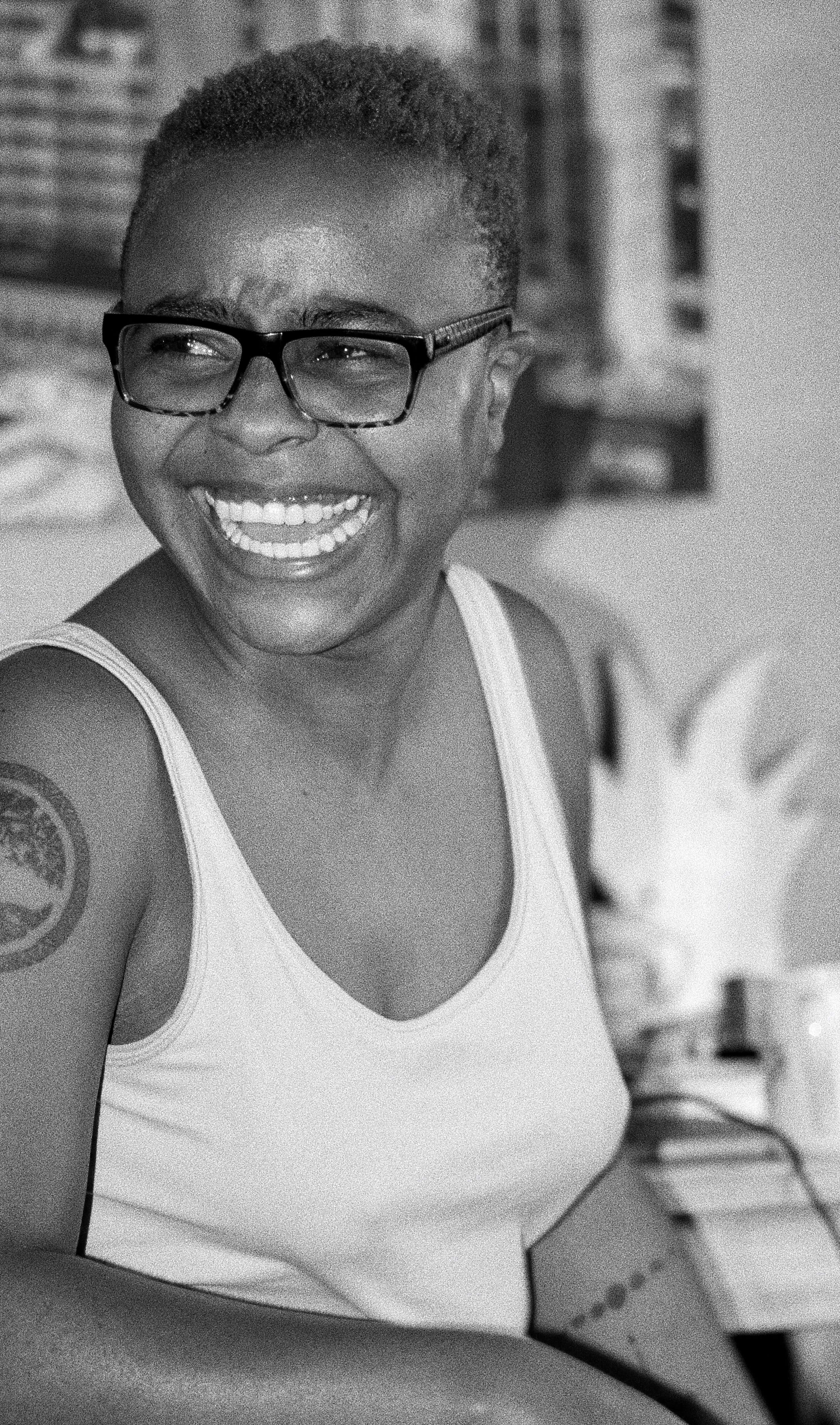
Masido
Mookh: What was the inspiration behind this edition?
Ngartia: We did a special edition in 2017 for the Story Moja Festival and someone from the audience came up to us and was like, yo! You know what? You should totally do a Too Early For Birds about Tom Mboya! And we were interested in doing that but then again this is something we hear after every show; someone knows someone and they connect us to someone. However, she told us his granddaughter is her friend and she was going to shoot an email and connect us and we could take it from there. We were excited but we knew that was nowhere in our plans. So, we did our 2018 stuff and then when we were planning to do our comeback and we hadn’t decided on what show to start with, we got a text from Magunga and then Ann called and they are both a part of the Rusinga Festival team. They told us that the 50th anniversary of Tom Mboya’s assassination is this year in July, this is in like February, and they were planning to do a thing and they wanted us to go and do a thing at the thing. We were like yeah, that’s actually a perfect show to come back with. We started working on the show but for a bunch of reasons we weren’t able to do it on the day but now it’s going to be in October.
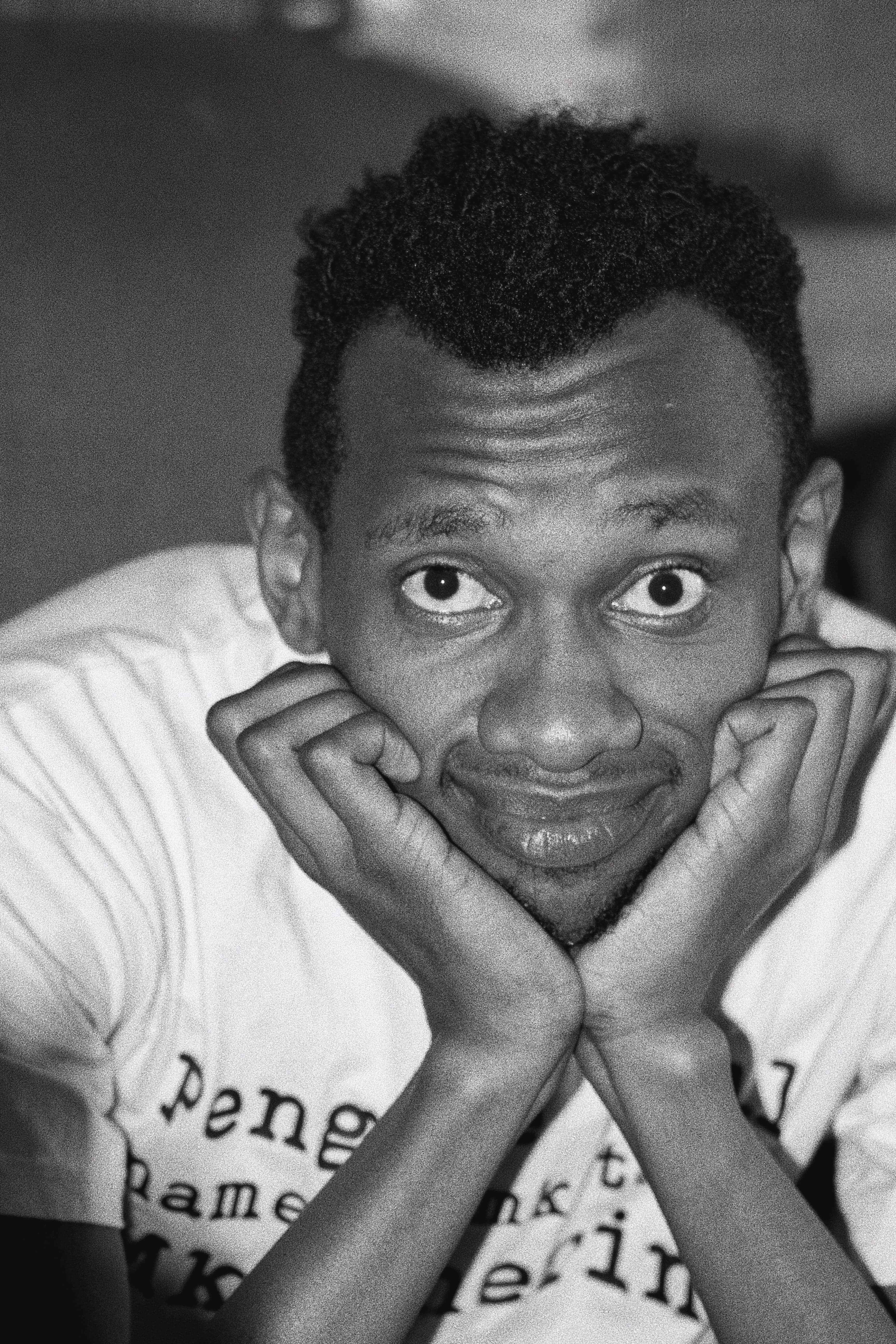
Ngartia
Mookh: What was the most challenging thing about this process?
Mercy: For Mercy, it was finding healing in the fact that there is more to Mboya’s death than anyone knows and finding out the injustices that took place throughout Kenya’s history and realizing how everything interconnects. You don’t know how that is mentally overwhelming until you’re somewhere and you’re trying to tell a story and you’re crying. It’s heartbreaking finding out this stuff is not fiction and it actually happened to a person. That there is someone somewhere who grew up without a father because of someone else’s insecurities. I think that has been the most challenging bit; finding out things, healing and moving on. It’s honestly not easy. The other thing is doing research. Things are not documented in Kenyan history. You go to Macmillan and you find the newspapers are old and not in good condition. You find a significant date and you know there is a story there but when you go to that specific section, you find it’s been cut off. This actually happened! To make it worse, there is no other place you can get such information. You just want to verify a story and you can’t because someone has cut out the story.
Magunga: Here is the thing, a lot of what our research contains is things that are already in the public domain. From things reported all the way in 1950s to as early as 2013. It’s in books; it’s in newspapers; it’s in documents and what keeps on surprising me, I don’t know if I should call it anger, is that it took us as a team more than a week to piece all the information but the other research guys took longer and once you lay down all the information, you wonder am I even supposed to know what I know? Am I even supposed to have this information? If we say this, will we have someone knocking on our doors and they are not census people? And why the hell is it that all these things are out there but nobody is talking about this shit? It’s all there for everyone to see, all you have to do is look. Nobody has ever sat down to just piece these things together? I swear you find out things and you’re like this is Game of Thrones. It’s just confusion, anger… just a lot of emotions.
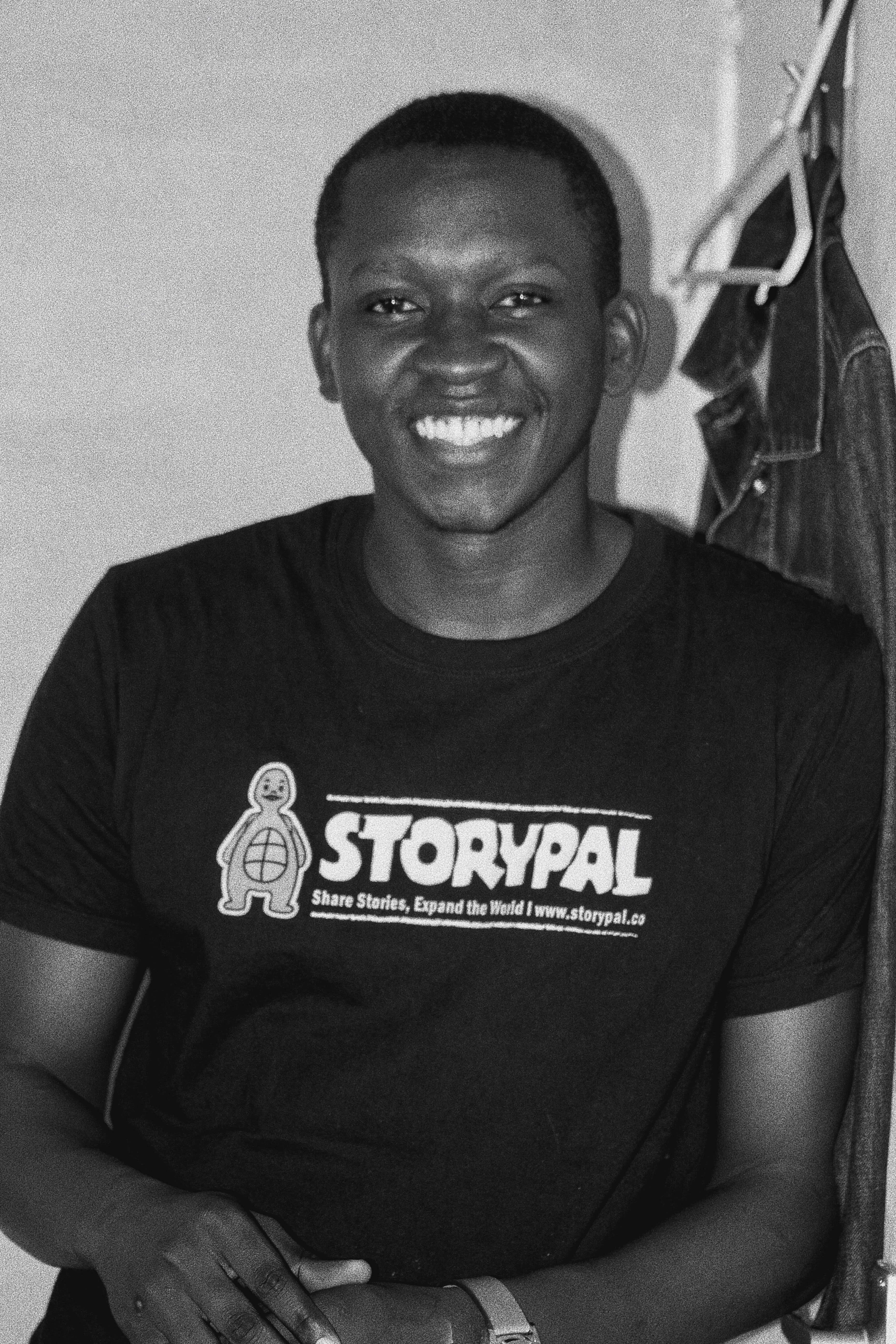
Magunga
Mookh: What was the aha moment for you? When did it feel like it was finally coming together?
Masido: We had an aha moment the day before we were supposed to hand in everything. We had agreed that everyone would write about whatever interests them and we found they were kinda borrowing into each other. We were supposed to hand in everything on Sunday and each of us was reading a piece on Saturday evening and there was a pattern that was forming around each of the pieces. So, we had an idea of what the tone of the show would be. It became a bit clearer.
Wanjiku: It was a blur. I just remember a lot of shouting and clarity and a lot of writing. I remember Ngartia and Magunga trying to remember a word and they couldn’t, for the life of them, remember that word. It was impunity. Ngartia said this really stupid thing, that word we keep saying on twitter! What was most memorable about that moment was the journey of the audience and figuring out that this is where we want them start. Also, the delicacy of saying we don’t want the audience to be as hurt as we are in the process of writing and reading about this stuff and finding out how we can journey with them so that they land in a place where they feel ok. They feel, yes, we lost someone who’s very important and we really love but it’s ok and what’s next? Coming up with that journey and being happy about it and feeling relief, that was amazing. It’s one of those ones for the books and I hope we still remember it 10 years to come.
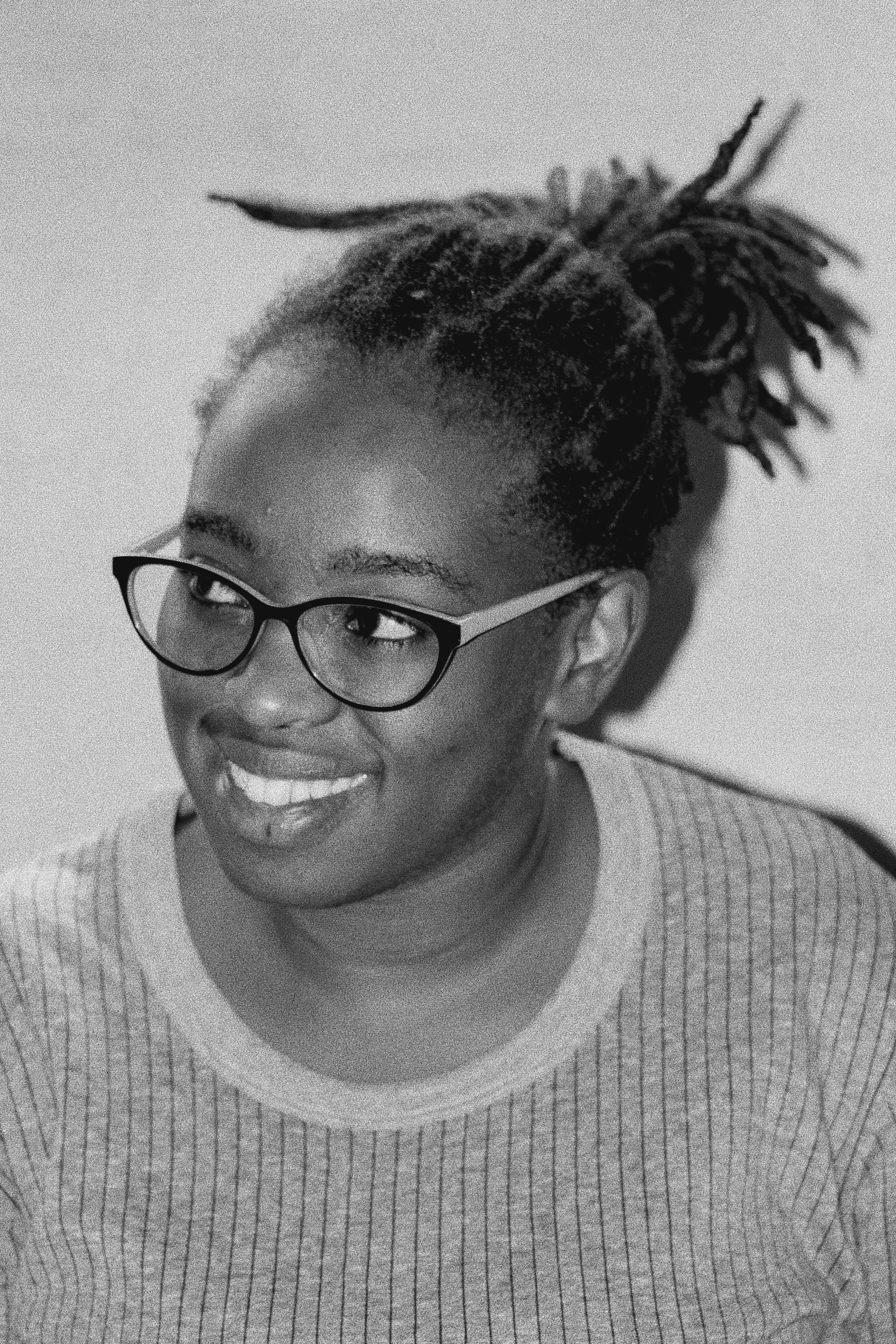
Wanjiku
Mookh: How do you feel about the script so far?
Ngartia: Hopeful… very hopeful. It seems we are headed towards one of my favorite problems; ok, what do we have to cut out? That’s always better than oh shit, we have to add some stories. There is a lot. Like today we thought we would spend the whole morning going through all the material but we’ve only handled one section and we have three. So, we feel very hopeful about the end product but it’s going to take a lot of stitching together and placing the whole thing on an anvil. Ha! Finally, I got to use that word! And knock it into shape.
Mercy: I’m excited about the stories we have. They are not only genius but also creative. I’m proud to say that Too Early For Birds is setting standards. We are glad that we set the standard for people and they realized they can do the same thing and this time we are taking the bar higher. Yes, I’m putting pressure on us, and yes, someone is going to hate me for saying this but it's true. I love that from the beginning stages, we have not edited ourselves and we have brought our geniuses... I won’t say our stupidity, into the story. I’m so excited about what will end up on stage because I feel like it will redefine a lot when it comes to storytelling. The unspoken element is that I do believe, in as much as it’s an entertainment show or a show where someone is coming to be enlightened, a lot of people are going to be healed. One thing about Mboya is that he always preached unity. The way we have pieced the story there is a uniting factor and there is a lot of weight on the importance of unity amongst Africans and hopefully it will click in some people’s minds or change someone’s mindset.
Mookh: In three words, what should we expect?
Masido: Heartbreak. Anger. Healing.
Magunga: Laughter and pain.
Wanjiku: Humor. Anger. Clarity.
Ngartia: Tom. Fucking. Mboya.
Mercy: What. The. F**k.
Buy your tickets for the 5th edition of Too Early For Birds here.

